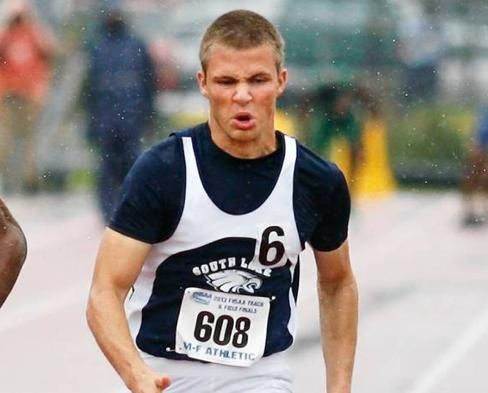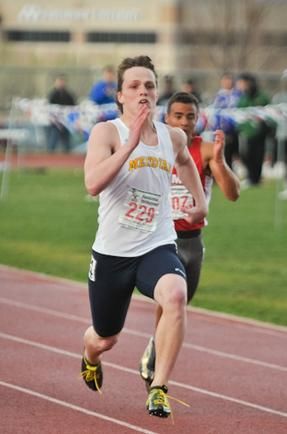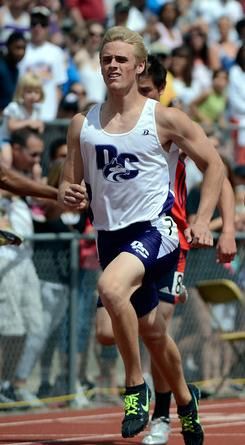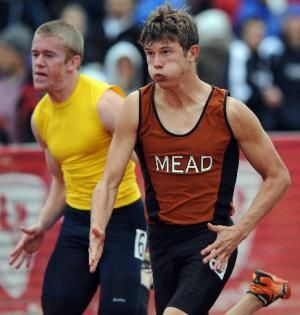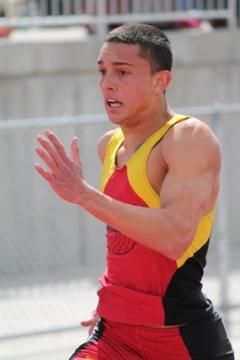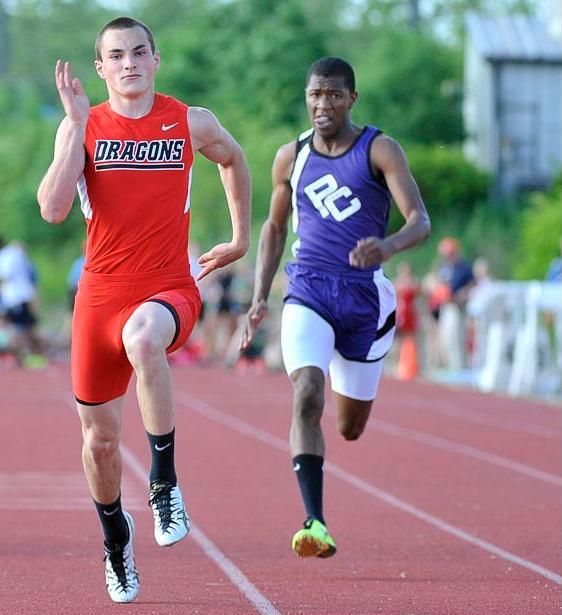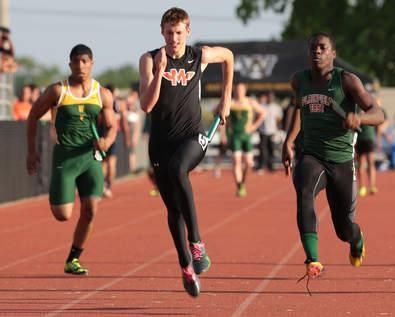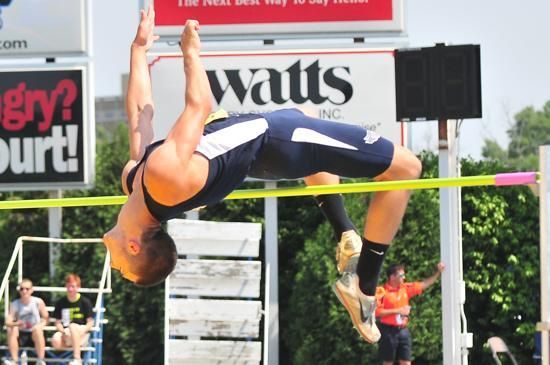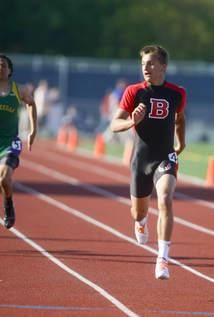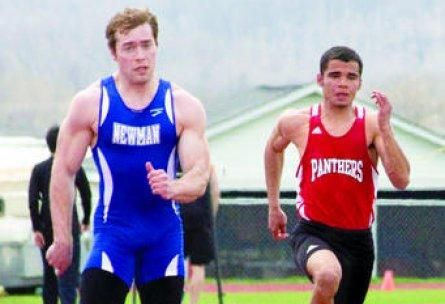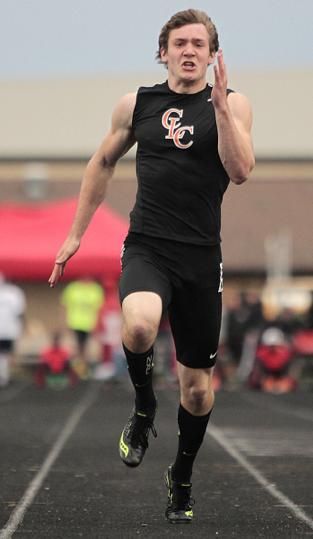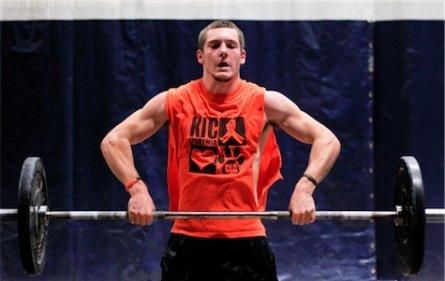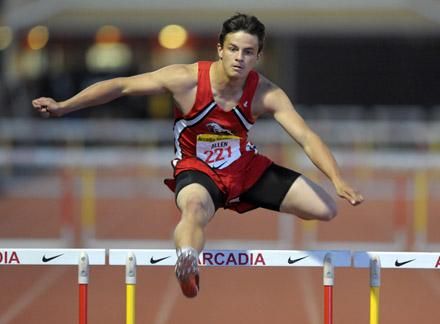Jimmy Chitwood
Hall of Famer
Just run, baby!
The biggest lie that makes the Caste System possible is that the White athlete just isn’t good enough to compete with (and prevail against) the Black athlete. If one buys into this notion, it becomes what is called a self-fulfilling prophecy. As quoted by Psychology Today:
In other words, if people believe it, then it becomes true. With regards to the Caste System, if White folks believe that they can’t perform on the level with their Black peers, then they won’t. This is primarily demonstrated by the lack of participation in so-called “Black†sports such as sprinting in track and field. If White athletes don’t believe they can run with the Black athletes, it follows that they won’t even go out for the sprints, then when they watch the sprints and see only Black kids running it fulfills their false belief that Blacks are faster.
Furthermore, it seems that facts do little to refute these powerful (albeit false) notions that perpetuate the Caste System (see the fastest female high school sprinter in the USA Marybeth Sant of Colorado).
Take, for example, my home state of Arkansas.
According to the most recent census data, Arkansas is a state with a population of a little less than 3 million that is approximately 74% White, 16% Black, with the majority of the remaining population Mexican. But when one observes the track teams around the state, you will see a disproportionately high number of Black participants compared to a disproportionately low number of White participants. (The self-fulfilling prophecy perhaps?)
In fact, it isn’t uncommon for the fastest White kids in the state to not even run track … they play baseball/softball (White sports) instead. Despite all that, though, the results on the track don’t bear out the “fact†that Black runners are faster. The “fact†is that when White athletes actually compete, they are quite competitive.
While there aren’t any elite sprinters in Arkansas this year (there is an elite thrower, a couple of impressive pole vaulters, and a pretty good high jumper), the results of this year’s track season are fairly typical. I’ll share them below.
The “foundation†of all Black-athletic-superiority claims is built upon Black dominance in the short straight-line sprint: the 100-meter dash. It’s said that the White athlete simply can’t measure up. My position is that, while virtually EVERY fast black kid runs track, very few fast White kids do. (Again, the self-fulfilling prophecy.) The results you see on the national stage are the logical result of the differing sample sizes. That being said, despite the small numbers who go out for sprinting in Arkansas, it’s still very common to see White athletes among the fastest kids in the state.
This year, the four fastest times in the 100-meters came at the Meet of Champs, a very cool track meet that pits the State Champions from all classifications (and the top three other fastest state times) against each other head-to-head. Not surprisingly, when the best go at it, they tend to step up their game. It was no different this year.
In the boys’ 100-meters, the #1 thru #4 fastest times in the state were separated by a mere 3-hundredths of a second. First place finished in a time of 10.78 seconds, second place in 10.79, third in 10.80, and fourth in 10.81. Not only did that make for an exciting race, it defies the notion that White athletes can’t run with their Black counterparts … because third (Nick Pattillo) and fourth (Chase Lamers) place were White kids. How is that possible?
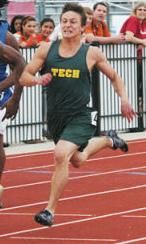
Nick Pattillo
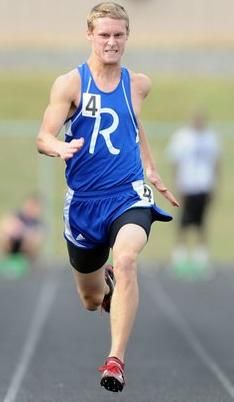
Chase Lamers
[Additionally, in terms of football recruitment, Kavin Alexander (who took second place) is considered one of the top defensive back prospects in the state, primarily because of his speed. He stands 5-feet-7 and is already a jacked-up 185-pounds. Conversely, Chase Lamers (fourth place) is not being recruited at all despite being one of the top free safeties in the state and measuring in at 6-foot-2 and a rail-thin 175. Which athlete would seem to have the more physical potential to improve?]
Similar results are found in the other sprint events, as well.
In the 200-meters White athletes have the second-fastest (Sain-Thomas Mathew, 22.20) and third-fastest (Chase Lamers, 22.22) times in the state.
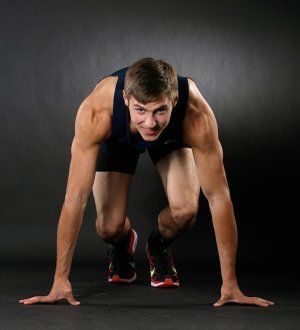
Sain-Thomas Mathew
In the 400-meters, Sain-Thomas Mathew (a junior) posted the #1 fastest time in the state, 48.37 seconds.
Likewise, White runners had the fastest times in the 800-meters (Noah Findlay, 1:55.94), in the 1600-meters (Grant Williams, 4:20.05), and the 3200-meters (Brendan Taylor, 9:12.43). The top two hurdlers in the state were also White. Spencer Sullivan posted the top time in the 300-meter hurdles (39.42) and the #3 in the 110-meter hurdles (15.00). Clint Ligon posted the second fastest time in both the 110-meter hurdles (14.87) and the 300-meter hurdles (39.80).
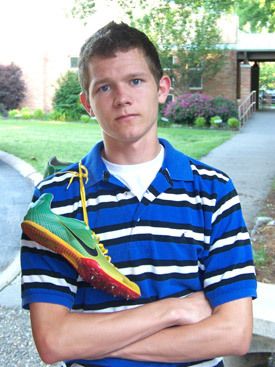
Noah Findlay
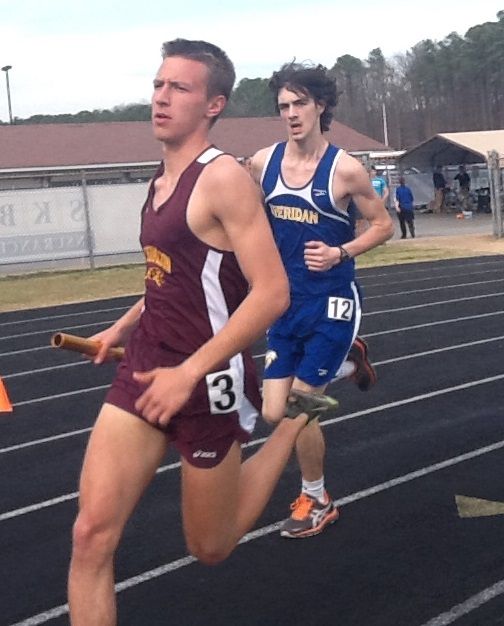
Grant Williams
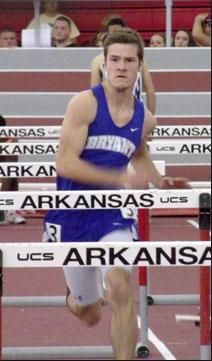
Spencer Sullivan
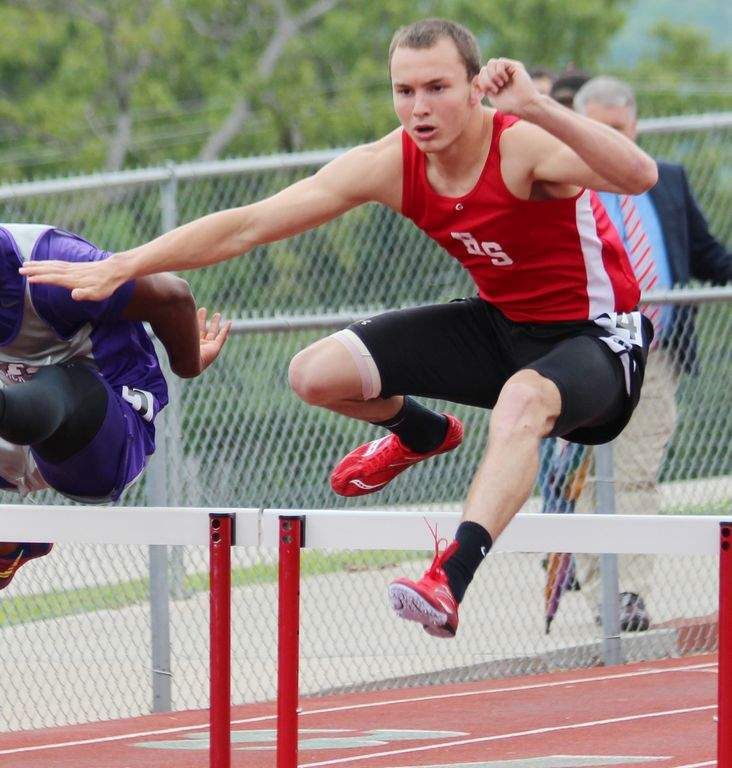
Clint Ligon
The field events were completely dominated this year by White athletes … even in the “Black†jumping events. Damian Blossom soared to the top mark in the high jump (6 feet, 8.00 inches). Brandon Workman is clearly a blue-collar athlete, as he flew to the top mark in the long jump (23 feet 1.75 inches). Nate Gneiting, an “overachieving†defensive back on the football field, stood alone on the triple jump, leaping a full 6 inches further than the nearest competition (46 feet, 1.25 inches).
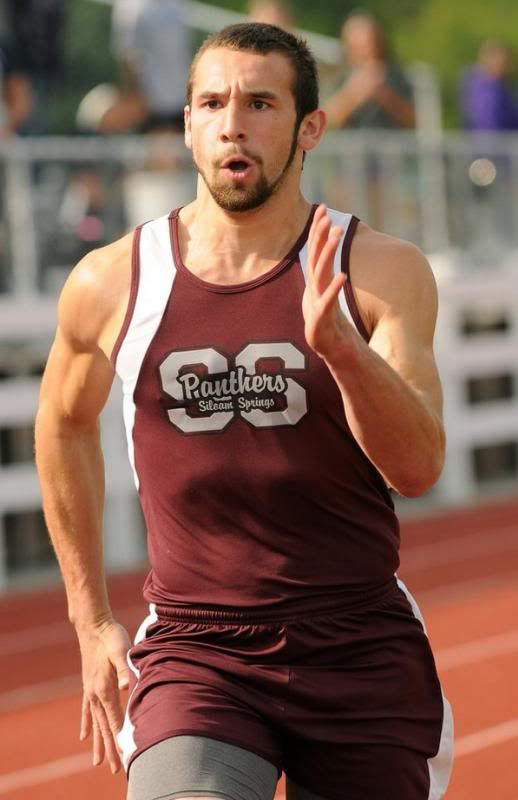
Damian Blossom
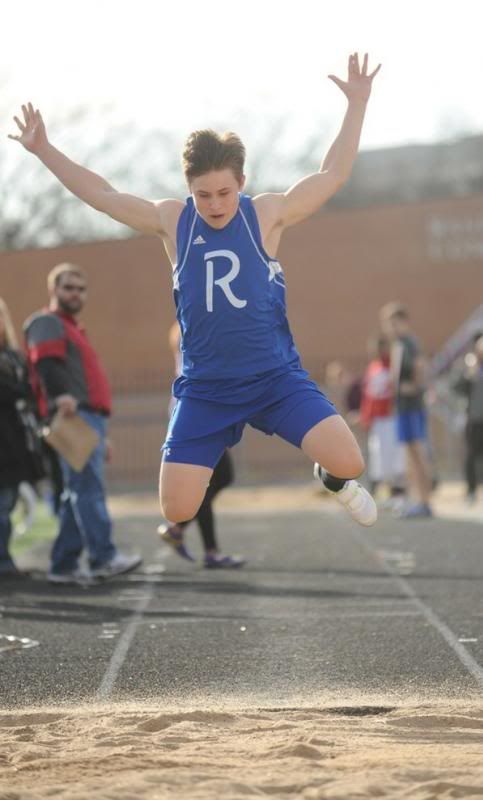
Brandon Workman
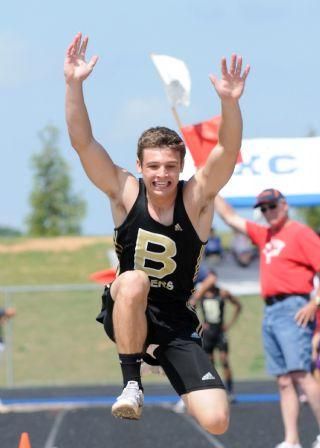
Nate Gneiting
In the pole vault, two nationally elite White athletes emerged. Kyle Wyatt took the state’s top mark (16 feet, 1 inch). Daniel Spickes, a versatile athlete who also finished with the state’s #3 mark in the long jump and #9 mark in the triple jump, actually knocked off Wyatt at the Meet of Champs in the pole vault but managed just the #2 mark in the state (15 feet 8 inches).
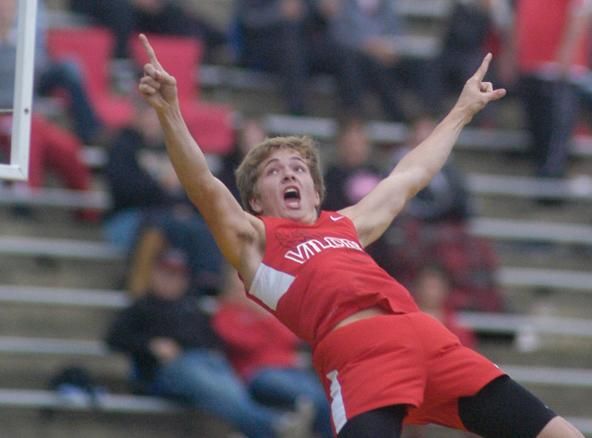
Kyle Wyatt
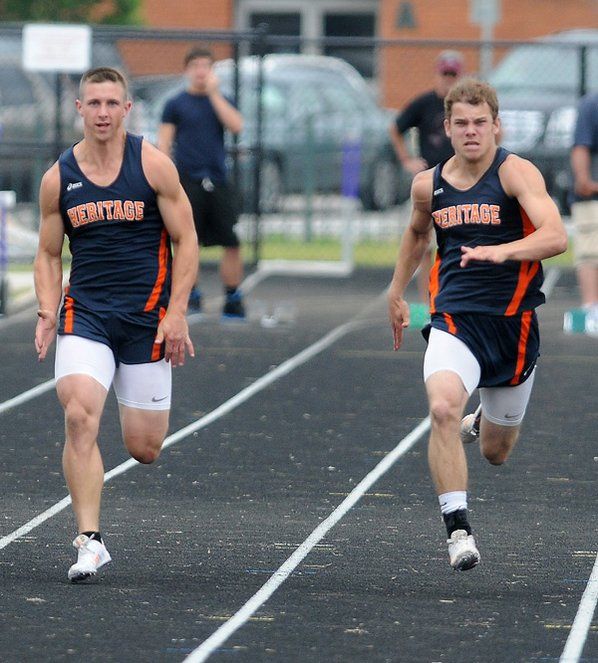
Daniel Spickes (on the right)
No one in the state can come close to Mark Guffin in the throws. Guffin holds the Arkansas state record in the discus (195 feet 2.5 inches) and the top spot with the shot (54 feet 6.25 inches).
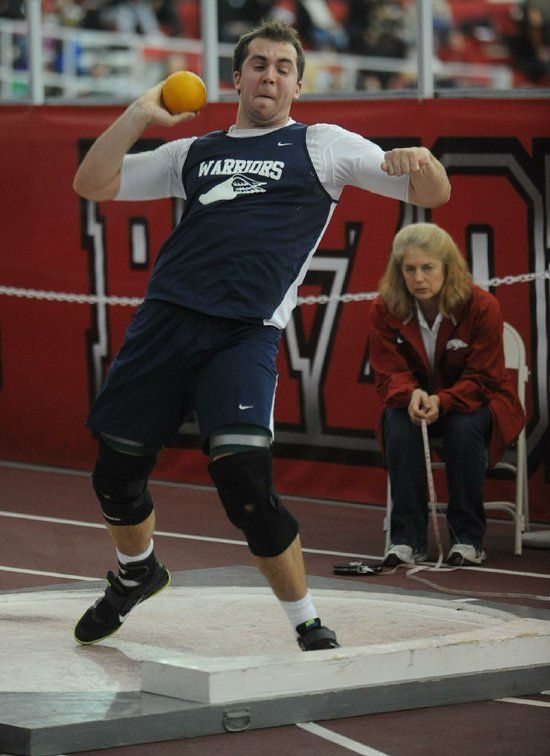
Mark Guffin
By my count, there are 14 individual track and field events at the State Championship level, and in Arkansas White athletes are among the elite in every single one of them. So why do so many (White) people insist and believe that White athletes aren’t good enough to compete? Furthermore, if more White athletes participated in track and field, it follows that there would likely be even more fast sprinters and terrific leapers … yet, so many believe the lie and don’t even go out for track.
There’s not a genetic component that holds back the White athlete. There is only a lack of belief that he (or she) can compete. That fundamental problem is one of the key components that allows the Caste System to exist.
The biggest lie that makes the Caste System possible is that the White athlete just isn’t good enough to compete with (and prevail against) the Black athlete. If one buys into this notion, it becomes what is called a self-fulfilling prophecy. As quoted by Psychology Today:
Self-fulfilling prophecies—ideas that become reality simply because someone believes them—do not usually have strong effects. But a study shows that expectations may come to pass when many people hold the same beliefs—if those beliefs are unfavorable.
In other words, if people believe it, then it becomes true. With regards to the Caste System, if White folks believe that they can’t perform on the level with their Black peers, then they won’t. This is primarily demonstrated by the lack of participation in so-called “Black†sports such as sprinting in track and field. If White athletes don’t believe they can run with the Black athletes, it follows that they won’t even go out for the sprints, then when they watch the sprints and see only Black kids running it fulfills their false belief that Blacks are faster.
Furthermore, it seems that facts do little to refute these powerful (albeit false) notions that perpetuate the Caste System (see the fastest female high school sprinter in the USA Marybeth Sant of Colorado).
Take, for example, my home state of Arkansas.
According to the most recent census data, Arkansas is a state with a population of a little less than 3 million that is approximately 74% White, 16% Black, with the majority of the remaining population Mexican. But when one observes the track teams around the state, you will see a disproportionately high number of Black participants compared to a disproportionately low number of White participants. (The self-fulfilling prophecy perhaps?)
In fact, it isn’t uncommon for the fastest White kids in the state to not even run track … they play baseball/softball (White sports) instead. Despite all that, though, the results on the track don’t bear out the “fact†that Black runners are faster. The “fact†is that when White athletes actually compete, they are quite competitive.
While there aren’t any elite sprinters in Arkansas this year (there is an elite thrower, a couple of impressive pole vaulters, and a pretty good high jumper), the results of this year’s track season are fairly typical. I’ll share them below.
The “foundation†of all Black-athletic-superiority claims is built upon Black dominance in the short straight-line sprint: the 100-meter dash. It’s said that the White athlete simply can’t measure up. My position is that, while virtually EVERY fast black kid runs track, very few fast White kids do. (Again, the self-fulfilling prophecy.) The results you see on the national stage are the logical result of the differing sample sizes. That being said, despite the small numbers who go out for sprinting in Arkansas, it’s still very common to see White athletes among the fastest kids in the state.
This year, the four fastest times in the 100-meters came at the Meet of Champs, a very cool track meet that pits the State Champions from all classifications (and the top three other fastest state times) against each other head-to-head. Not surprisingly, when the best go at it, they tend to step up their game. It was no different this year.
In the boys’ 100-meters, the #1 thru #4 fastest times in the state were separated by a mere 3-hundredths of a second. First place finished in a time of 10.78 seconds, second place in 10.79, third in 10.80, and fourth in 10.81. Not only did that make for an exciting race, it defies the notion that White athletes can’t run with their Black counterparts … because third (Nick Pattillo) and fourth (Chase Lamers) place were White kids. How is that possible?

Nick Pattillo

Chase Lamers
[Additionally, in terms of football recruitment, Kavin Alexander (who took second place) is considered one of the top defensive back prospects in the state, primarily because of his speed. He stands 5-feet-7 and is already a jacked-up 185-pounds. Conversely, Chase Lamers (fourth place) is not being recruited at all despite being one of the top free safeties in the state and measuring in at 6-foot-2 and a rail-thin 175. Which athlete would seem to have the more physical potential to improve?]
Similar results are found in the other sprint events, as well.
In the 200-meters White athletes have the second-fastest (Sain-Thomas Mathew, 22.20) and third-fastest (Chase Lamers, 22.22) times in the state.

Sain-Thomas Mathew
In the 400-meters, Sain-Thomas Mathew (a junior) posted the #1 fastest time in the state, 48.37 seconds.
Likewise, White runners had the fastest times in the 800-meters (Noah Findlay, 1:55.94), in the 1600-meters (Grant Williams, 4:20.05), and the 3200-meters (Brendan Taylor, 9:12.43). The top two hurdlers in the state were also White. Spencer Sullivan posted the top time in the 300-meter hurdles (39.42) and the #3 in the 110-meter hurdles (15.00). Clint Ligon posted the second fastest time in both the 110-meter hurdles (14.87) and the 300-meter hurdles (39.80).

Noah Findlay

Grant Williams

Spencer Sullivan

Clint Ligon
The field events were completely dominated this year by White athletes … even in the “Black†jumping events. Damian Blossom soared to the top mark in the high jump (6 feet, 8.00 inches). Brandon Workman is clearly a blue-collar athlete, as he flew to the top mark in the long jump (23 feet 1.75 inches). Nate Gneiting, an “overachieving†defensive back on the football field, stood alone on the triple jump, leaping a full 6 inches further than the nearest competition (46 feet, 1.25 inches).

Damian Blossom

Brandon Workman

Nate Gneiting
In the pole vault, two nationally elite White athletes emerged. Kyle Wyatt took the state’s top mark (16 feet, 1 inch). Daniel Spickes, a versatile athlete who also finished with the state’s #3 mark in the long jump and #9 mark in the triple jump, actually knocked off Wyatt at the Meet of Champs in the pole vault but managed just the #2 mark in the state (15 feet 8 inches).

Kyle Wyatt

Daniel Spickes (on the right)
No one in the state can come close to Mark Guffin in the throws. Guffin holds the Arkansas state record in the discus (195 feet 2.5 inches) and the top spot with the shot (54 feet 6.25 inches).

Mark Guffin
By my count, there are 14 individual track and field events at the State Championship level, and in Arkansas White athletes are among the elite in every single one of them. So why do so many (White) people insist and believe that White athletes aren’t good enough to compete? Furthermore, if more White athletes participated in track and field, it follows that there would likely be even more fast sprinters and terrific leapers … yet, so many believe the lie and don’t even go out for track.
There’s not a genetic component that holds back the White athlete. There is only a lack of belief that he (or she) can compete. That fundamental problem is one of the key components that allows the Caste System to exist.


